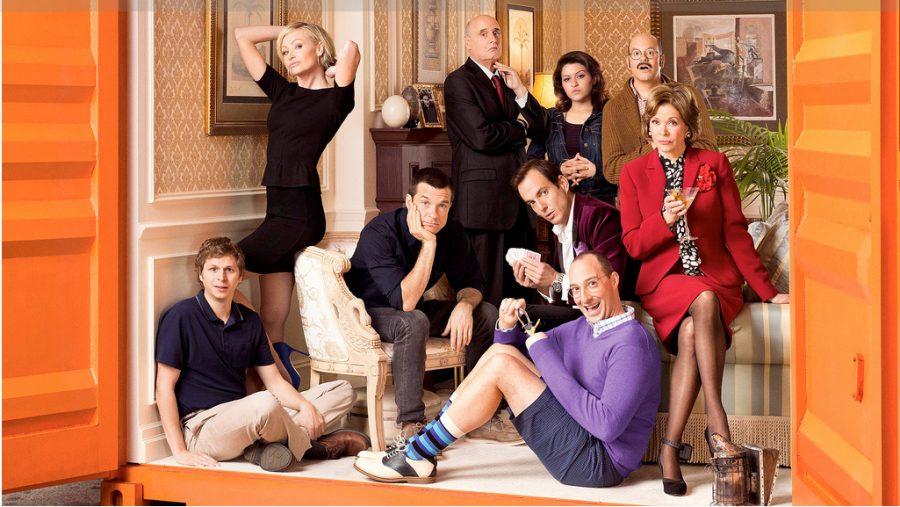Author: Samantha Van Doran
On May 26, Netflix released 15 new episodes of Arrested Development, a much-anticipated addition to the TV show about the dysfunctional Bluth family. The unsuccessful show originally premiered a decade ago and gained a cult following thanks to DVD sales and its availability on Netflix.
Arrested Development is a show about three generations of the Bluth clan and their family business. There’s not a single honest or upright person among them, except for Michael (Jason Bateman) and his son George Michael (the forever-awkward Michael Cera). In the 2003 pilot, Michael’s father George gets arrested and the show develops along with his legal troubles, which grow from embezzlement to what he calls “light” treason. Michael is left in charge of the company and the family, with “no choice but to keep them all together.”
Many feel Fox axed the show too soon in 2006. With its constant innuendos and complex characters, Arrested was likely just ahead of its time. It is so quick-witted and dense that it needs to be watched, rewound and re-watched again—an ability we now have thanks to media providers like Netflix. Heartbroken fans found hope again when the company began pre-production for AD in 2012.
However, season four got off to a rocky, if not depressing, start. Sitting on the couch with my best friend at 3 a.m., ready for an all-nighter with the Bluths, I felt utterly let down after the premiere. The family barely interacted and I missed their chaotic run-ins. Michael seemed whinier, and a good deal of time (including the words of the theme song) was spent reminding us how the Bluths’ future was “abruptly canceled.” Many jokes didn’t make sense because they were tied to later episodes, and the timeline of the Bluths’ last few years was choppy and confusing. On the surface, this did not seem like the hilarious show I knew and loved.
Several factors made season four different from the other three, and Netflix is one of them. Netflix is unlike regular television because it is not television: it is a website that offers access at any time to certain shows and movies, in exchange for a monthly fee. Seasons of TV shows are released altogether when Netflix gains the rights to them. It makes sense that when Netflix recently started making its own shows, they would be released all at once too.
With that in mind, Arrested Development writers made the new episodes so they could be binge-watched in any order. Each episode focused on one character and what they’d been doing over the last few years, and all storylines ended at a party near Michael’s parents’ home. Different episodes revealed different parts of conversations between family members, so the entire season felt like one eight-hour episode in the end.
This new and polarizing format worked well for the show’s actors, who have much busier schedules now than they did in 2003. Bateman and Cera have been in countless movies since Arrested ended and Tony Hale, who plays feeble Buster Bluth, now stars in HBO’s Veep. This made a reunion difficult, but Netflix’s format allowed for the creation of a season without every actor being present at one time. With these restrictions and a seven-year gap to fill, it would have been impossible—maybe even boring—to create a show identical to older seasons.
As someone who hates change, I was hesitant to watch on after that first episode. Thankfully, things picked up and the Bluths were quickly back to their old ways. George Michael tries to pass off his cousin as his girlfriend again (but also starts a company with her) and Michael’s brother GOB (Will Arnett) gets himself into more trouble with magic (but not in the way you’d think). It’s the same old AD, with a few twists.
What’s truly important, I found by the finale, is that the new season has the same feel as the old ones. The humor and the self-references are still there: for example, one of the show’s biggest jokes is confronted when Michael’s oblivious brother-in-law finds he has been assumed to be gay for 10 years. Even in the iffy premiere episode, Michael walks in front of a mural that recaps his entire past. Arrested Development still has its own inside jokes and rewards dedicated fans that know every family phrase and flaw—and this is the show’s trademark.
If you’re an Arrested fan who’s caught up on the old seasons, go in with an open mind and give season four a chance. You may not love it at first, but you’ll be interested to see what the Bluths have been up to all these years, and happy to see their familiar, winking faces again.







































































































